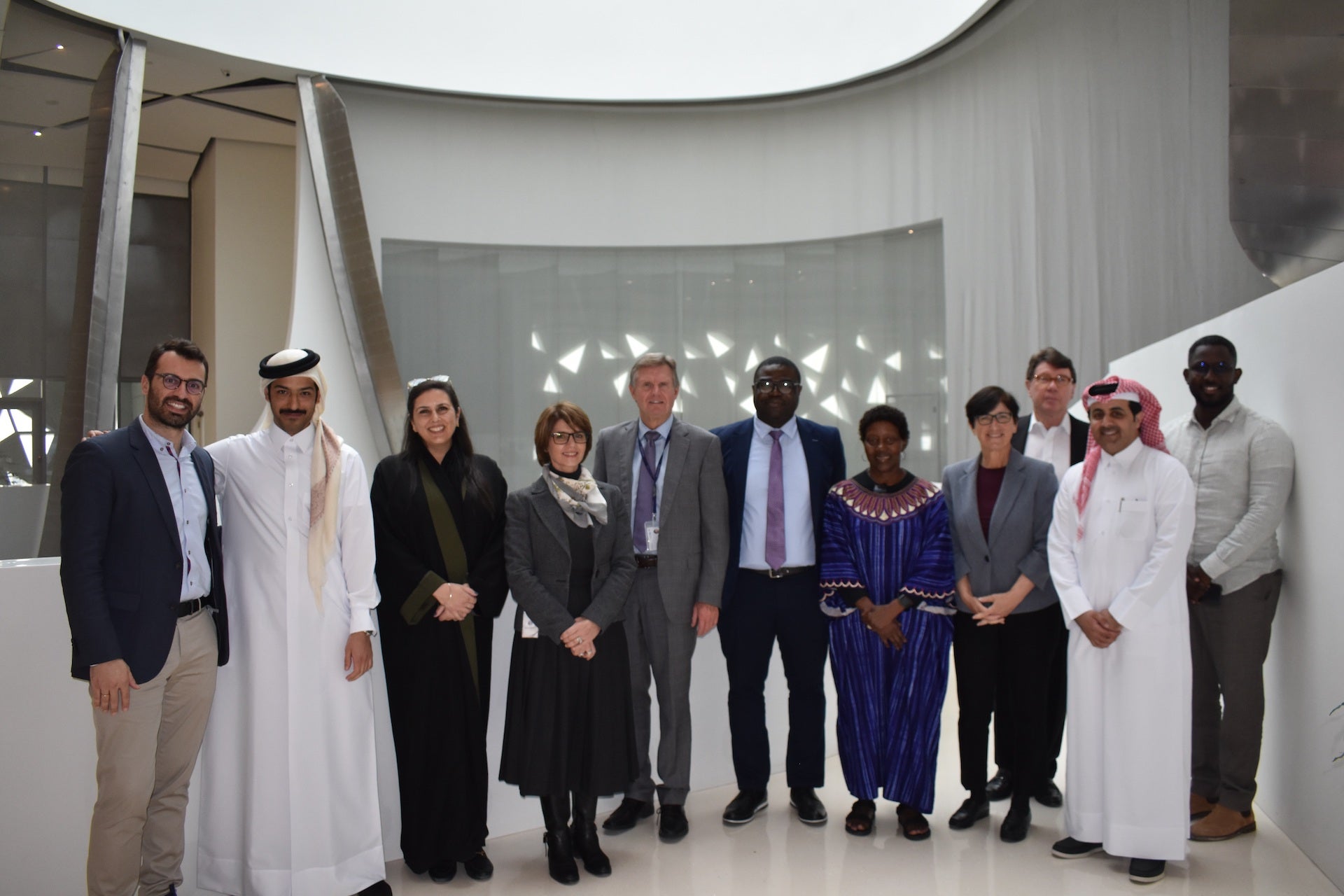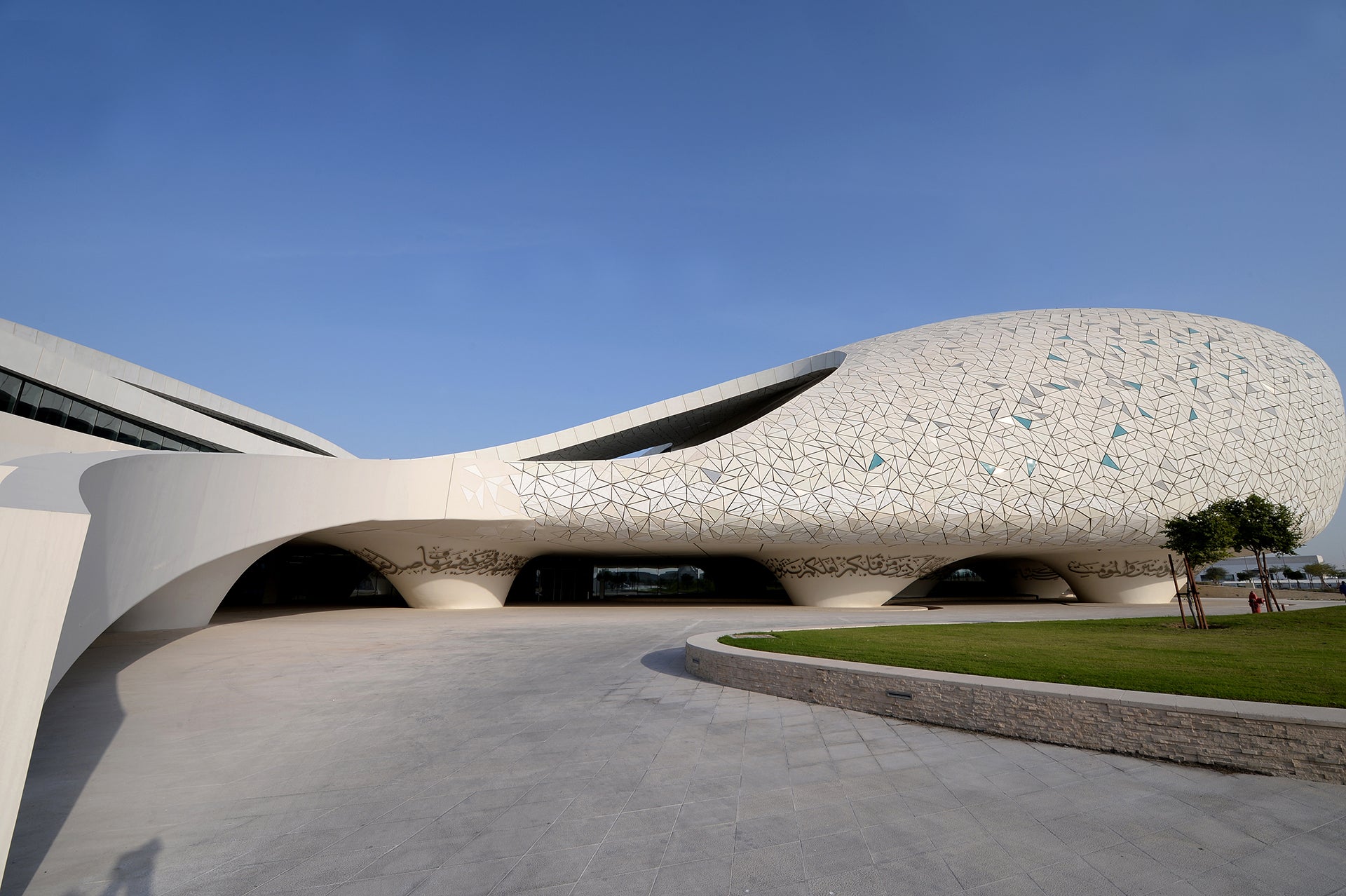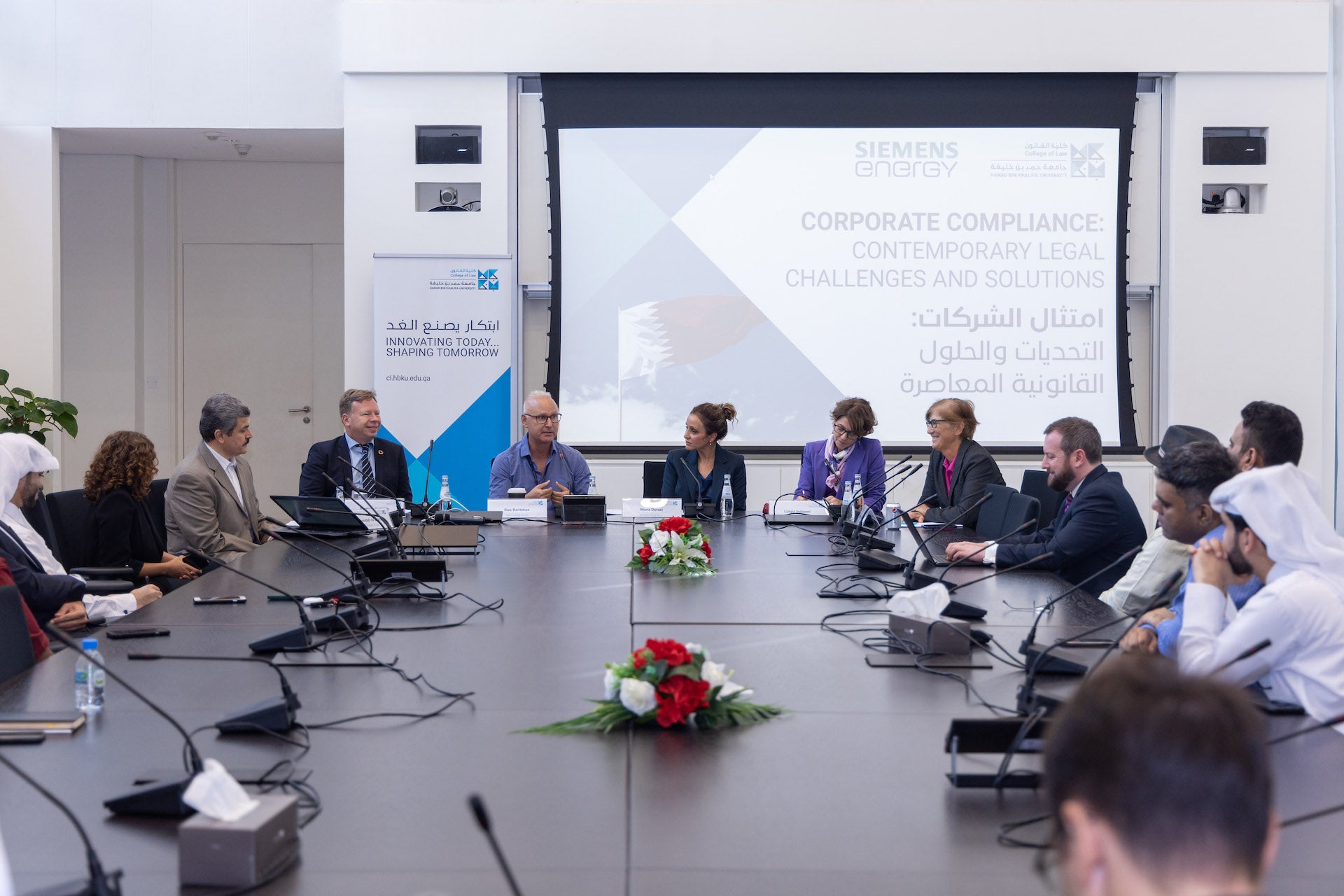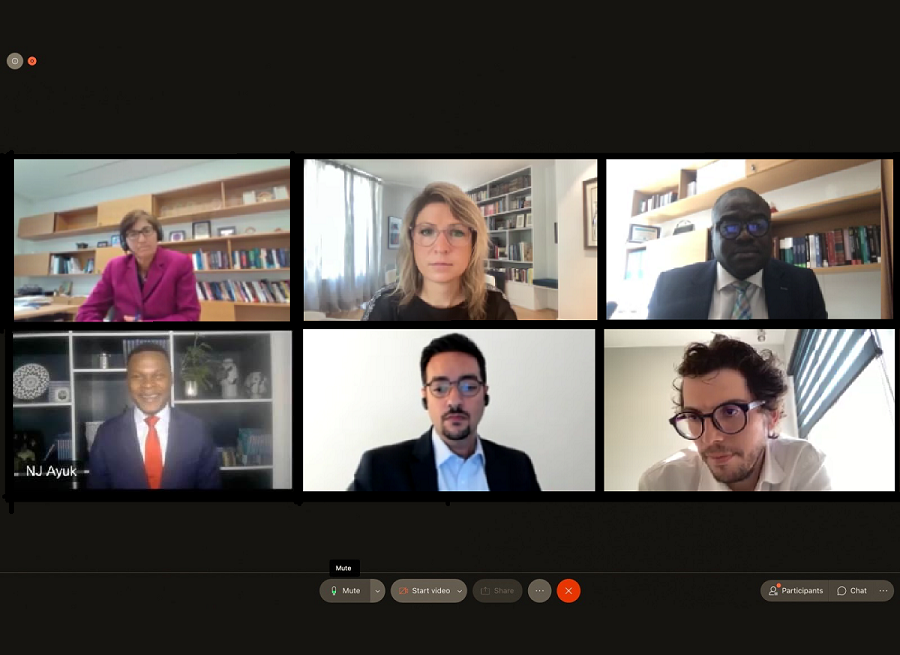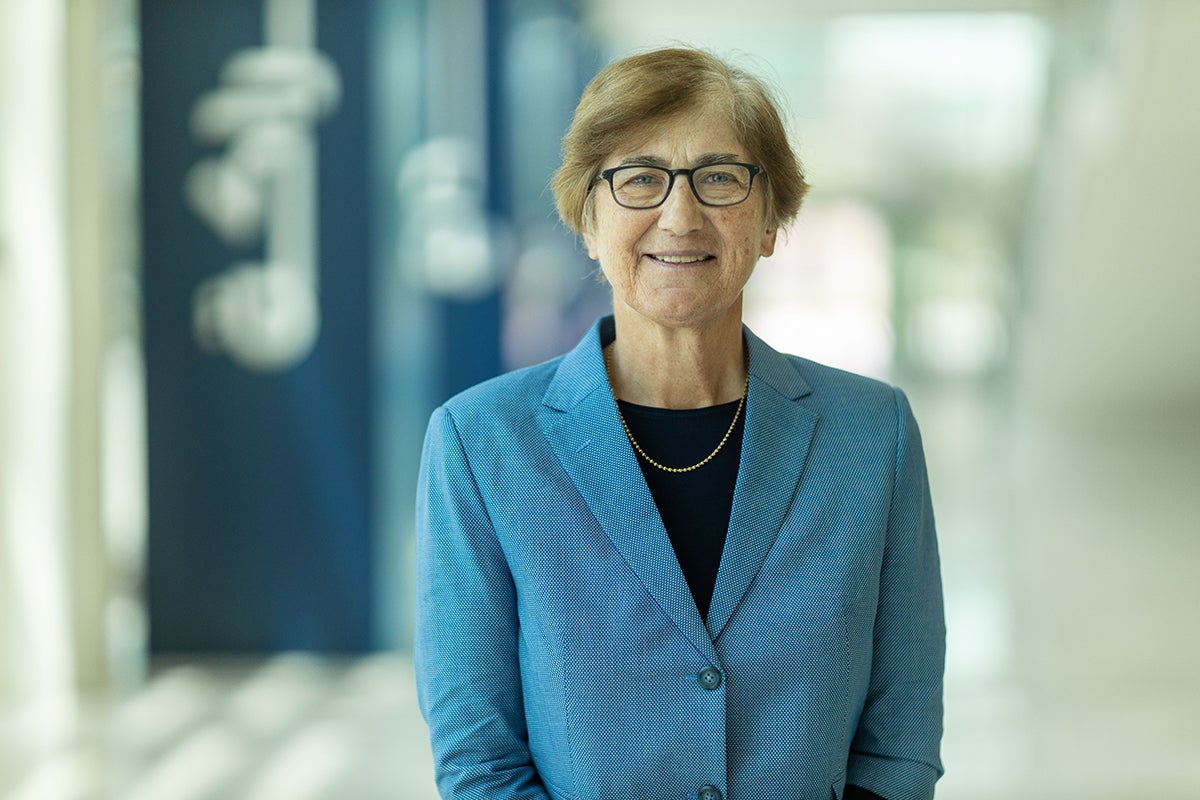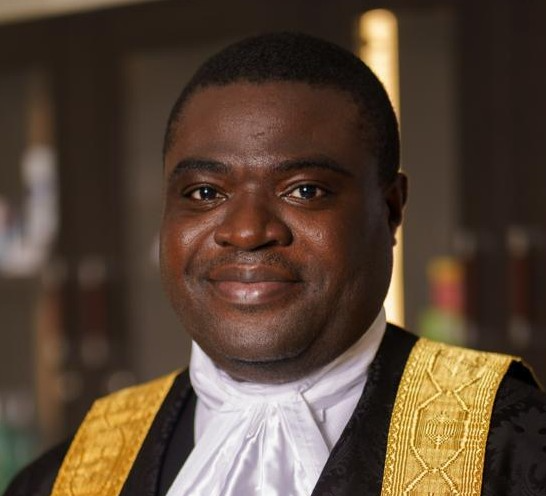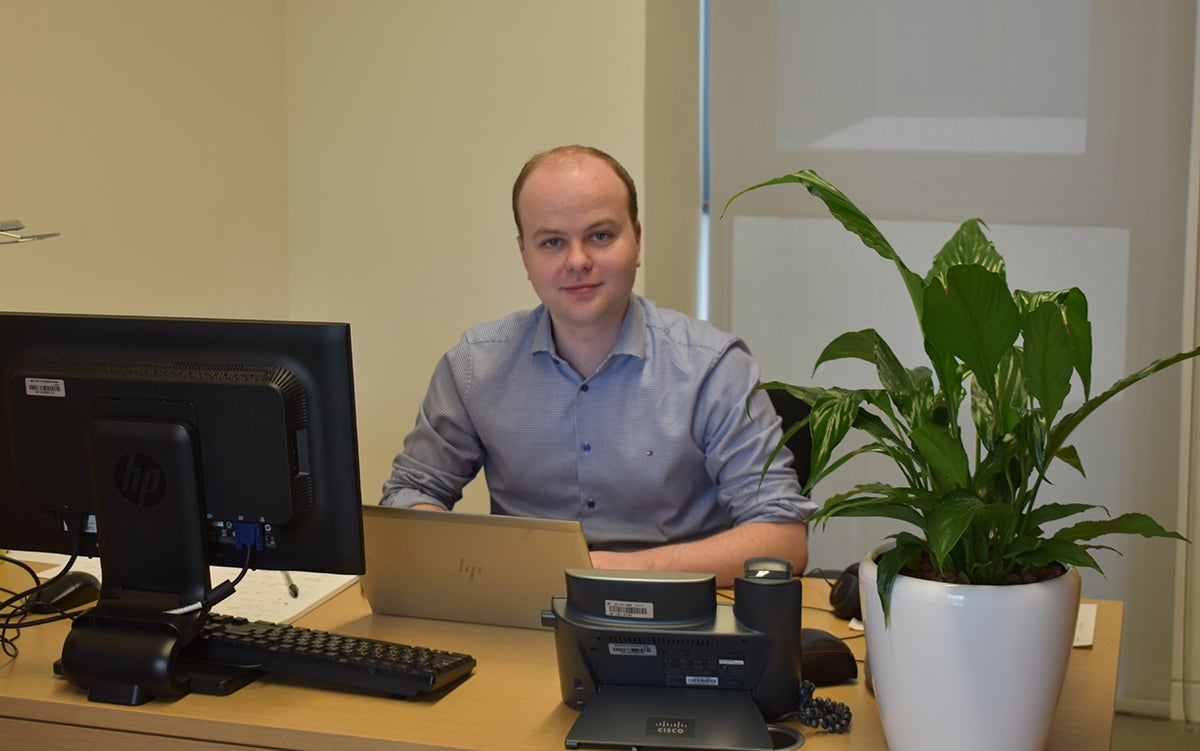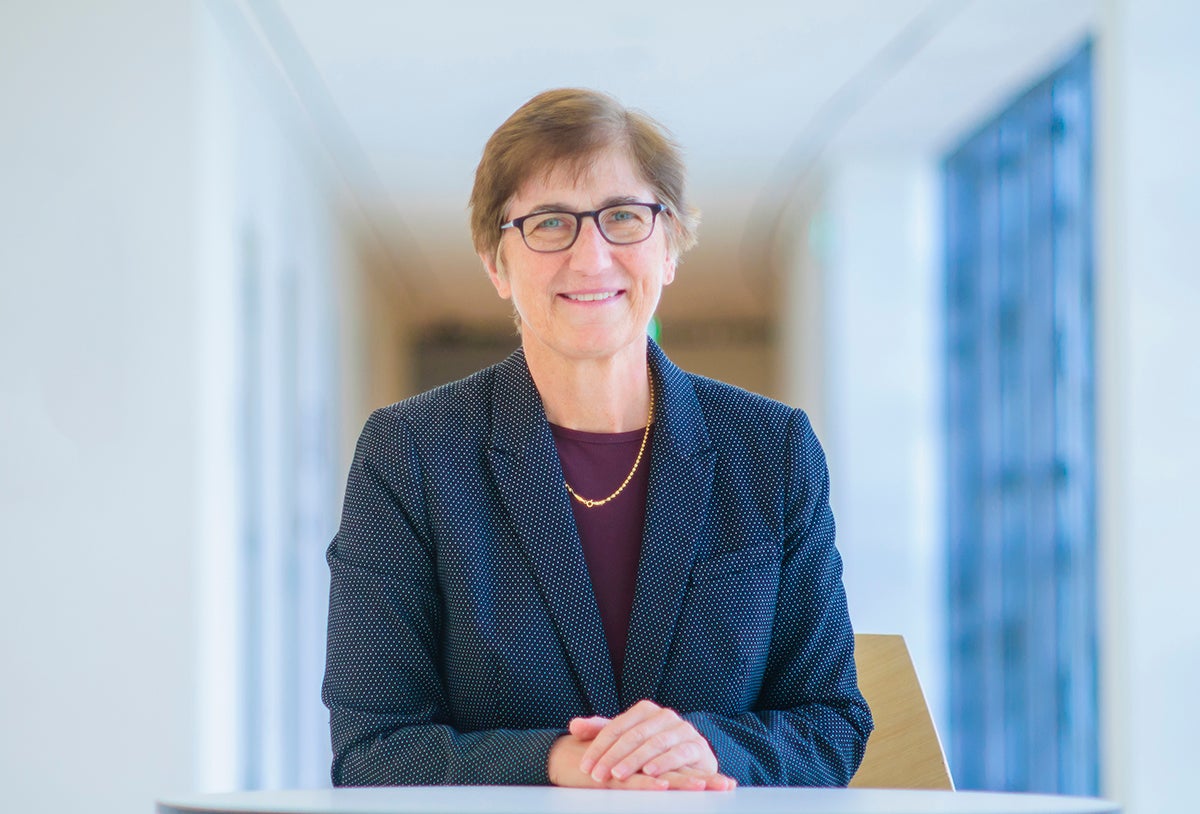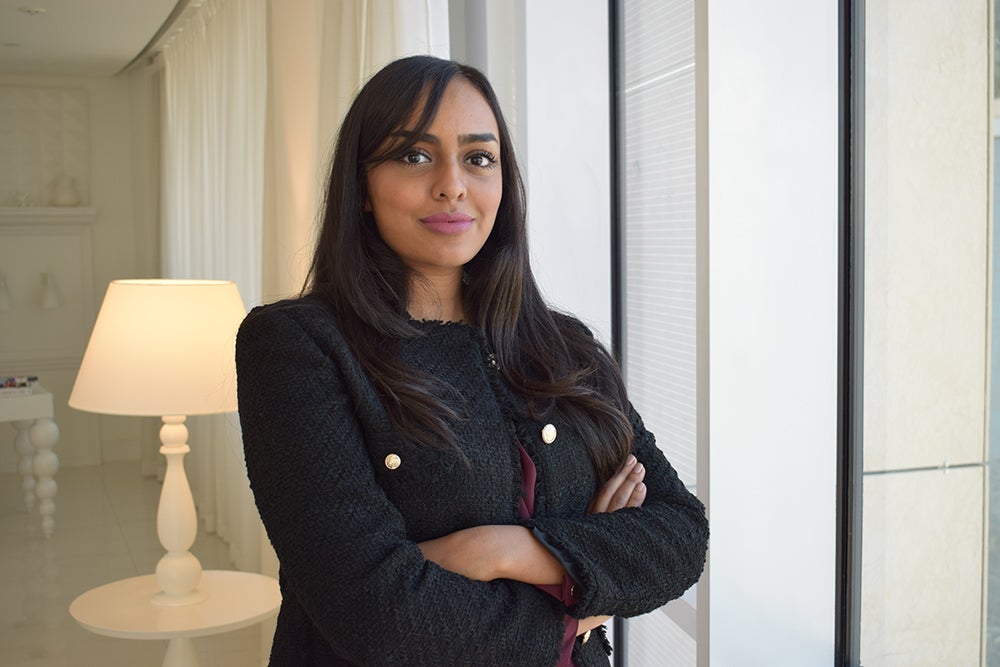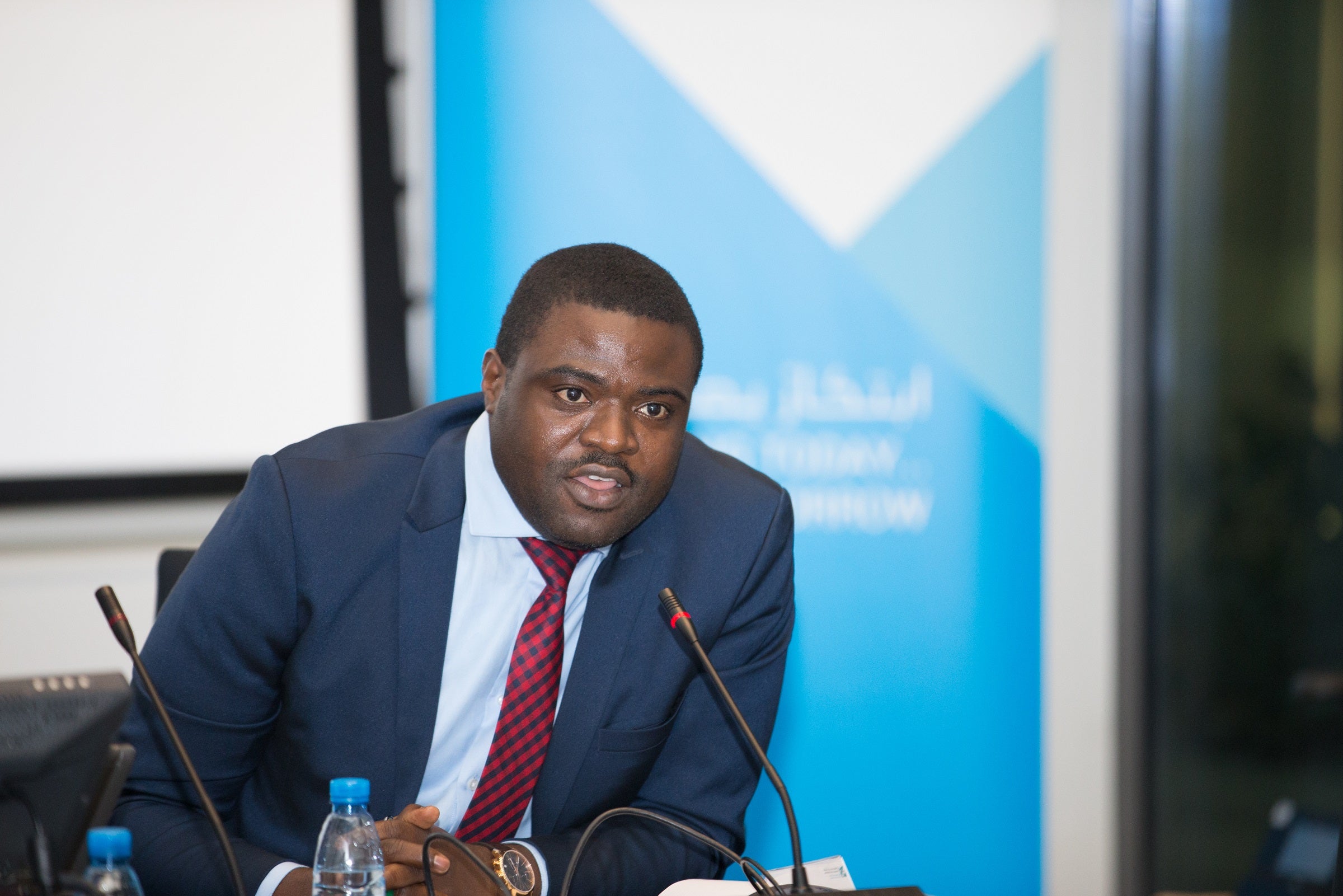
HBKU Establishes UNESCO Chair on Environmental Law
Dr. Damilola S. Olawuyi, Associate Professor in Law and expert in environmental law, appointed first Chair holder
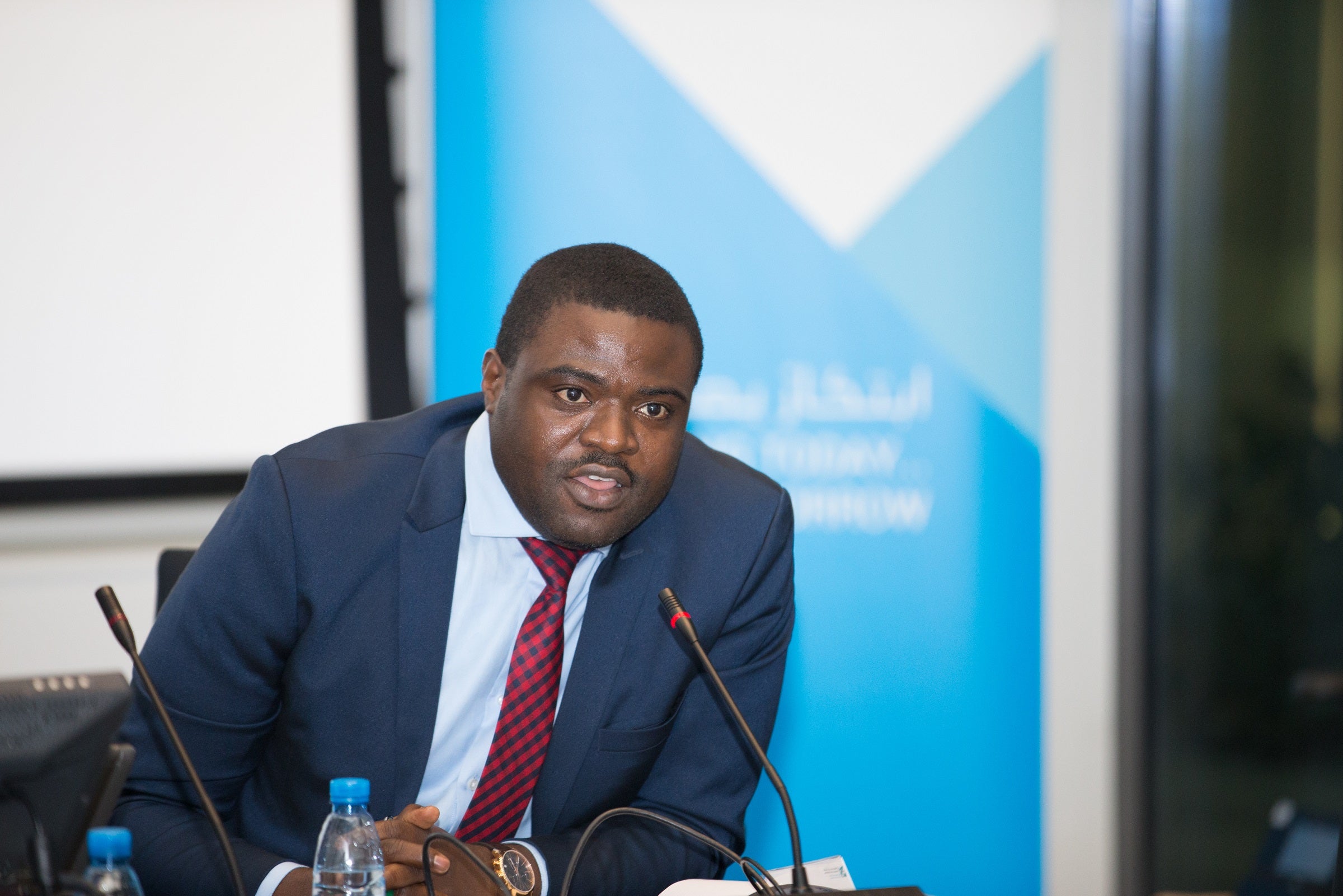
Hamad Bin Khalifa University (HBKU), through its College of Law, has been selected by the United Nations Educational, Scientific, and Cultural Organization (UNESCO) to establish a Chair on Environmental Law and Sustainability. Dr. Damilola S. Olawuyi, Associate Professor and Associate Dean of Research at HBKU College of Law, has been appointed the first Chair holder.
The UNESCO Chair on Environmental Law and Sustainability at HBKU was created through the UNITWIN/UNESCO Chairs Program (UNESCO Chairs and UNITWIN Networks | UNESCO) with the goal of promoting an integrated system of research, training, information, and data analysis on environmental law and sustainable development. The agreement signed between HBKU, a Qatar Foundation (QF) member, and UNESCO, the United Nations' specialized agency for education, establishes the Chair for an initial period of four years.
The University Twinning and Networking (UNITWIN)/UNESCO Chairs Program was established in 1992 to promote inter-university cooperation and networking to act as a stimulus for academic mobility and the rapid transfer of knowledge as well as to promote academic solidarity. The network involves over 880 higher education institutions in 117 countries, and the Chair at HBKU is only the fourth to be established in Qatar.
Commenting on the UNESCO Chair, Dr. Ahmad M. Hasnah, President of HBKU, said: “Dr. Olawuyi’s research, teaching and leadership in the environmental law and energy law fields has helped place HBKU on the map as a leader in the area of sustainability, which is one of the five pillars that guides research within QF. Working with UNESCO will enable HBKU to expand its reach and thus contribute more to the global legal landscape relating to critical issues such as climate change and water and food security. We are especially grateful to UNESCO for its support of this important initiative.”
As Chair holder, Dr. Olawuyi’s multifaceted role will be to develop a program to foster UNESCO’s emerging work on sustainability science, including research, with an emphasis on the legal dimension of sustainable development. A Harvard and Oxford-trained scholar, Dr. Olawuyi is a senior advocate of Nigeria (SAN) and author of the new book, Environmental Law in Arab States (Oxford University Press 2022), with recognized expertise in petroleum law, energy, and international environmental law.
The Chair will pursue collaboration within the Network of 880 UNESCO Chairs, between internationally recognized researchers and teaching staff at HBKU, and other institutions in Qatar, the Arab region, and across the world. These efforts will include support for international networks on sustainable development, cooperation with Africa through strong partnerships in Nigeria, an established connection with the United Nations Development Programme (UNDP), and collaboration with UNESCO’s BRIDGES coalition on climate change.
Mr. Salah Khaled, Director of the UNESCO Office in Doha and Representative to the Arab Gulf States and Yemen, stated: “As the MENA region is moving towards diversified and greener economies as well as sustainable urban development and lifestyles, it’s evident that countries will need expertise to support the development of adequate environmental policies and regulations based on evidence, benchmarks and best practices from other regions. We congratulate the College of Law on the establishment of this prominent research program on environmental law. We stand ready to support the chair in its endeavor towards reinforcing South-South scientific cooperation and knowledge transfer.”
In her response, the College of Law’s Dean Susan L. Karamanian said: “We’re delighted to host the UNESCO Chair and warmly congratulate Dr. Olawuyi on his appointment. This is a tremendous honor for HBKU and the College of Law. The Chair is an exceptional platform to reinforce the regional and international dimensions of our work advancing sustainable development. The foundation already exists under a regional network that Dr. Olawuyi helped establish in 2018, the Association of Environmental Law Lecturers in Middle East and North African Universities (ASSELLMU). Sustainable development is also reflected in the research of our faculty and their approach to teaching, particularly in terms of training ethically-grounded legal practitioners to be capable of collaborative leadership.”
Dr. Olawuyi said: “I’m very honored to play a role in the international collaborative UNESCO Chairs’ network. My goal as Chair holder will be to both strengthen and build new, inclusive collaborations for higher education institutions to align their efforts towards the 2030 Sustainable Development Agenda. This is a challenging time for our societies and calls for innovative approaches and unified advocacy to build a better future for the years to come.”
Related News
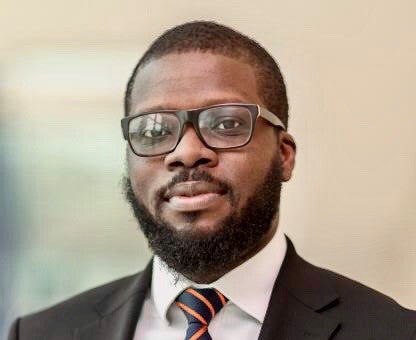
HBKU’s College of Law Faculty Selected on 2020 List of ‘35 Leaders of the Future in Taxation’
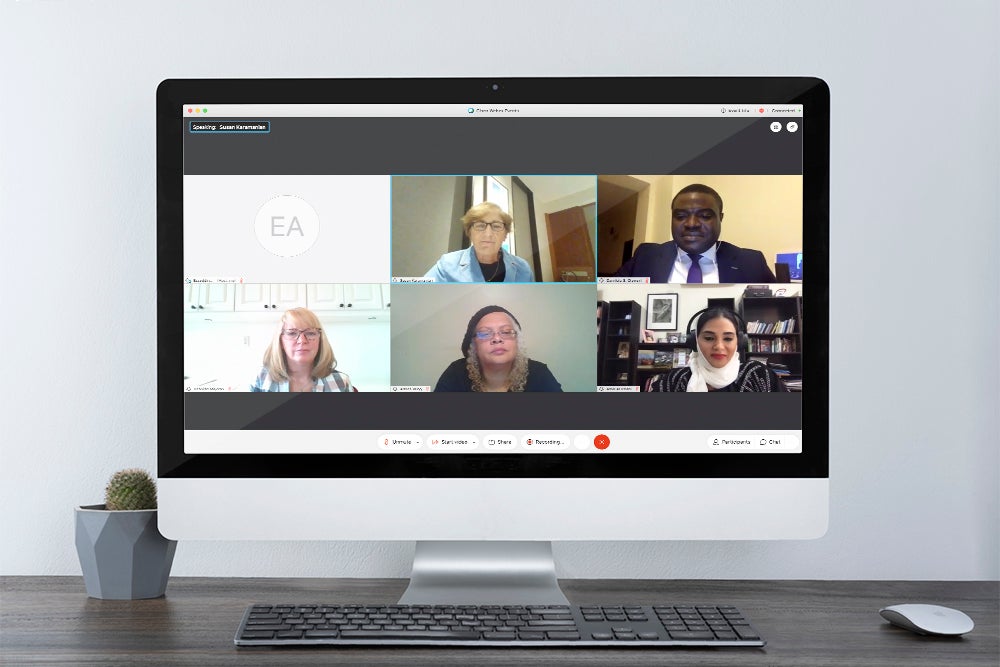
College of Law Event Joins Dots Between Eliminating Racism and Achieving Sustainable Societies
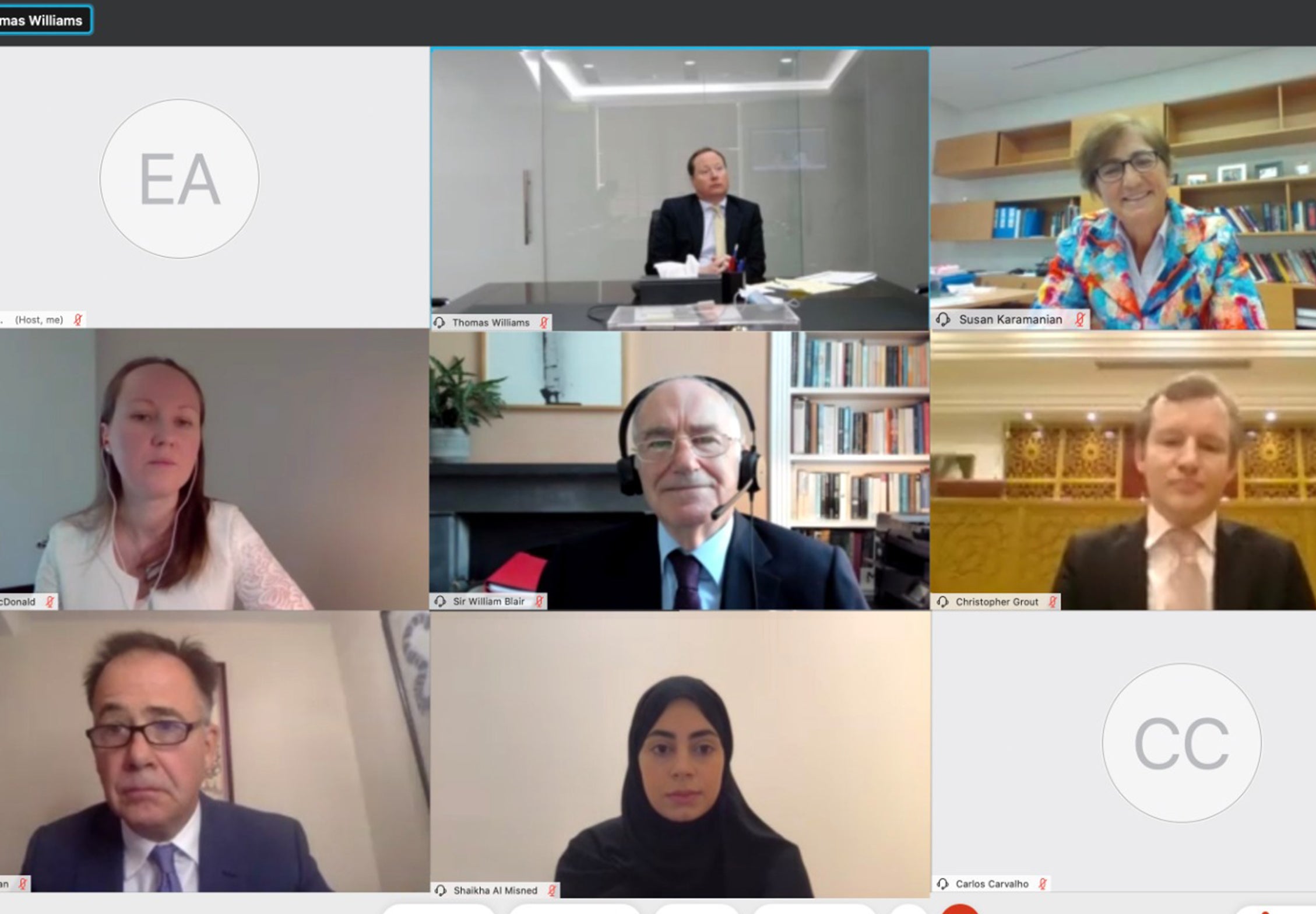
College of Law Webinar Considers Effects of COVID-19 on Commercial Contracts and Sovereign Borrowing
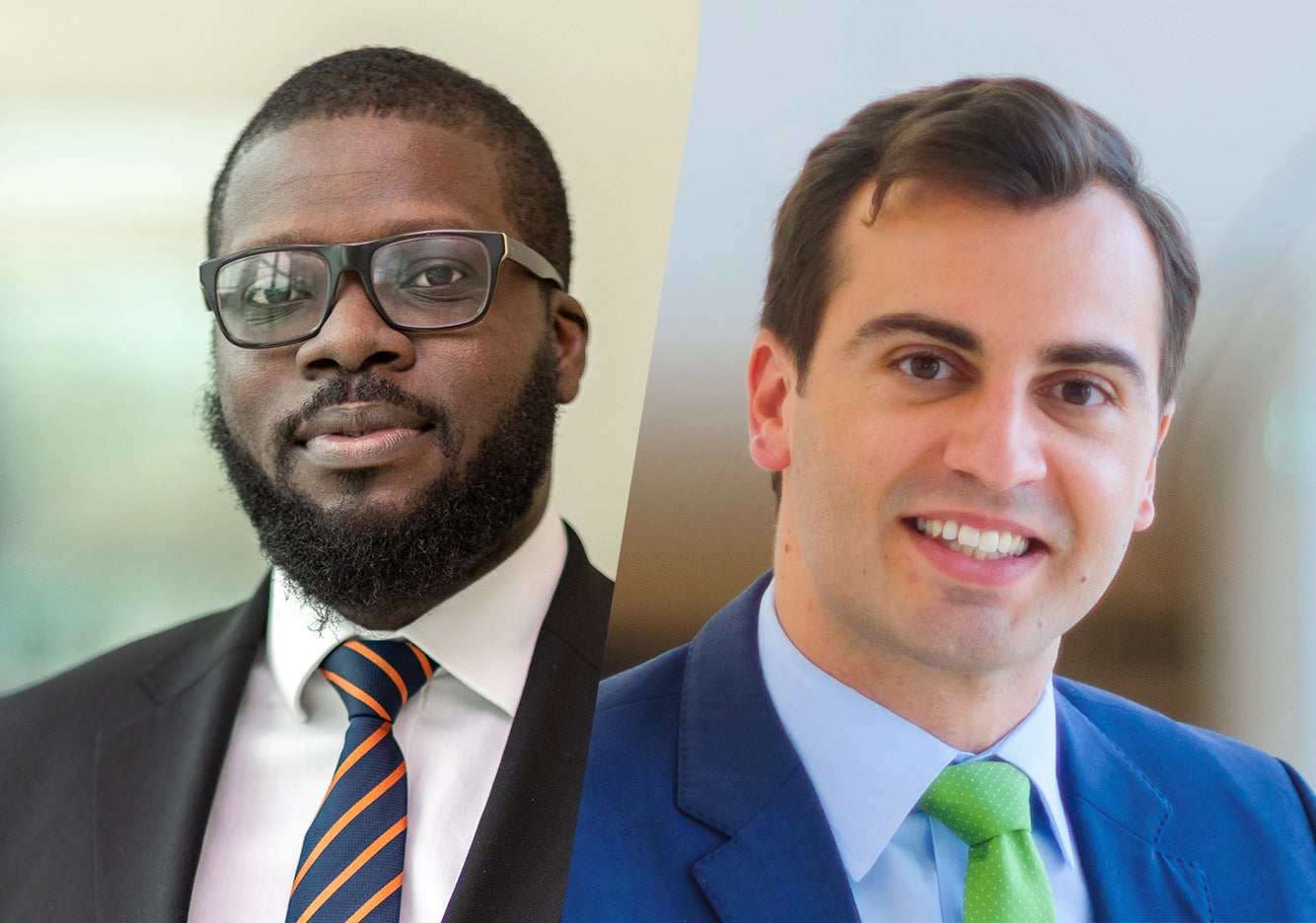
Qatar’s New Public-Private Partnership Law: Towards a Sustainable Approach to Development
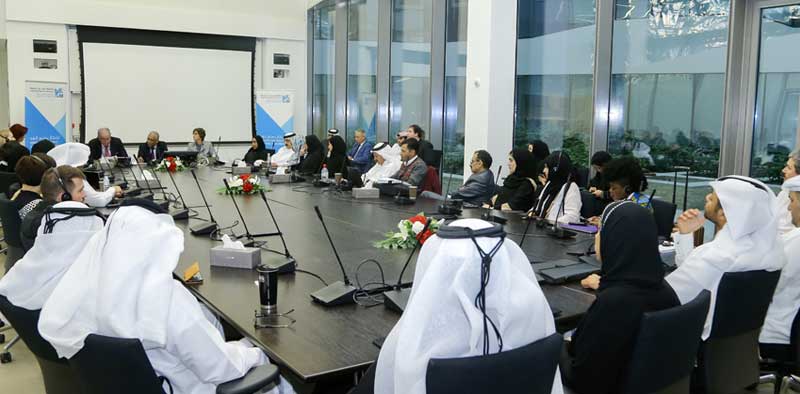
HBKU’s College of Law and Public Policy Hosts Minister-President of Paraguay’s Supreme Court of Justice
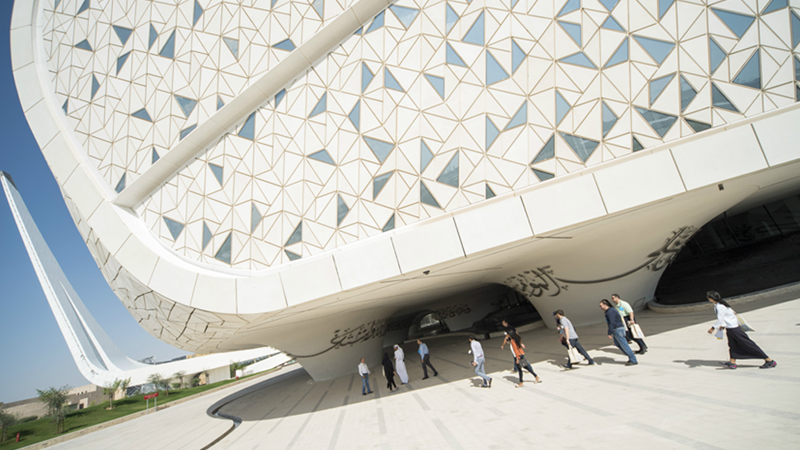
HBKU’S College of Law and Public Policy Colloquium to Examine Dispute Resolution Between Countries
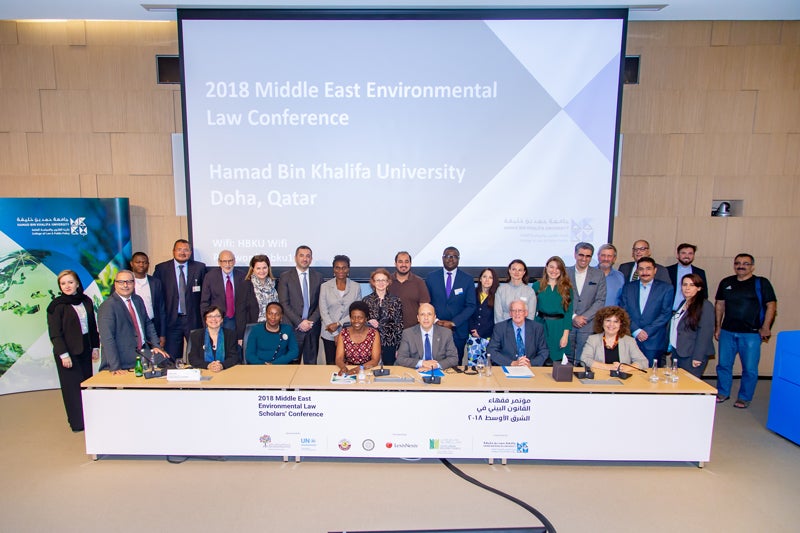
HBKU Conference Highlights Need to Introduce Environmental Law to Higher Education in the Middle East

The Promise of Hybrid Dispute Resolution Fora Conference to be Held at HBKU’s College of Law and Public Policy

HBKU’s College of Law Faculty Selected on 2020 List of ‘35 Leaders of the Future in Taxation’

College of Law Event Joins Dots Between Eliminating Racism and Achieving Sustainable Societies

College of Law Webinar Considers Effects of COVID-19 on Commercial Contracts and Sovereign Borrowing

Qatar’s New Public-Private Partnership Law: Towards a Sustainable Approach to Development

HBKU’s College of Law and Public Policy Hosts Minister-President of Paraguay’s Supreme Court of Justice

HBKU’S College of Law and Public Policy Colloquium to Examine Dispute Resolution Between Countries

HBKU Conference Highlights Need to Introduce Environmental Law to Higher Education in the Middle East

The Promise of Hybrid Dispute Resolution Fora Conference to be Held at HBKU’s College of Law and Public Policy

HBKU’s College of Law Faculty Selected on 2020 List of ‘35 Leaders of the Future in Taxation’

College of Law Event Joins Dots Between Eliminating Racism and Achieving Sustainable Societies

College of Law Webinar Considers Effects of COVID-19 on Commercial Contracts and Sovereign Borrowing

Qatar’s New Public-Private Partnership Law: Towards a Sustainable Approach to Development

HBKU’s College of Law and Public Policy Hosts Minister-President of Paraguay’s Supreme Court of Justice

HBKU’S College of Law and Public Policy Colloquium to Examine Dispute Resolution Between Countries

HBKU Conference Highlights Need to Introduce Environmental Law to Higher Education in the Middle East

The Promise of Hybrid Dispute Resolution Fora Conference to be Held at HBKU’s College of Law and Public Policy

HBKU’s College of Law Faculty Selected on 2020 List of ‘35 Leaders of the Future in Taxation’

College of Law Event Joins Dots Between Eliminating Racism and Achieving Sustainable Societies

College of Law Webinar Considers Effects of COVID-19 on Commercial Contracts and Sovereign Borrowing

Qatar’s New Public-Private Partnership Law: Towards a Sustainable Approach to Development

HBKU’s College of Law and Public Policy Hosts Minister-President of Paraguay’s Supreme Court of Justice

HBKU’S College of Law and Public Policy Colloquium to Examine Dispute Resolution Between Countries

HBKU Conference Highlights Need to Introduce Environmental Law to Higher Education in the Middle East

The Promise of Hybrid Dispute Resolution Fora Conference to be Held at HBKU’s College of Law and Public Policy

HBKU’s College of Law Faculty Selected on 2020 List of ‘35 Leaders of the Future in Taxation’

College of Law Event Joins Dots Between Eliminating Racism and Achieving Sustainable Societies

College of Law Webinar Considers Effects of COVID-19 on Commercial Contracts and Sovereign Borrowing

Qatar’s New Public-Private Partnership Law: Towards a Sustainable Approach to Development

HBKU’s College of Law and Public Policy Hosts Minister-President of Paraguay’s Supreme Court of Justice

HBKU’S College of Law and Public Policy Colloquium to Examine Dispute Resolution Between Countries

HBKU Conference Highlights Need to Introduce Environmental Law to Higher Education in the Middle East

The Promise of Hybrid Dispute Resolution Fora Conference to be Held at HBKU’s College of Law and Public Policy

HBKU’s College of Law Faculty Selected on 2020 List of ‘35 Leaders of the Future in Taxation’

College of Law Event Joins Dots Between Eliminating Racism and Achieving Sustainable Societies

College of Law Webinar Considers Effects of COVID-19 on Commercial Contracts and Sovereign Borrowing

Qatar’s New Public-Private Partnership Law: Towards a Sustainable Approach to Development

HBKU’s College of Law and Public Policy Hosts Minister-President of Paraguay’s Supreme Court of Justice

HBKU’S College of Law and Public Policy Colloquium to Examine Dispute Resolution Between Countries

HBKU Conference Highlights Need to Introduce Environmental Law to Higher Education in the Middle East

The Promise of Hybrid Dispute Resolution Fora Conference to be Held at HBKU’s College of Law and Public Policy

HBKU’s College of Law Faculty Selected on 2020 List of ‘35 Leaders of the Future in Taxation’

College of Law Event Joins Dots Between Eliminating Racism and Achieving Sustainable Societies

College of Law Webinar Considers Effects of COVID-19 on Commercial Contracts and Sovereign Borrowing

Qatar’s New Public-Private Partnership Law: Towards a Sustainable Approach to Development

HBKU’s College of Law and Public Policy Hosts Minister-President of Paraguay’s Supreme Court of Justice

HBKU’S College of Law and Public Policy Colloquium to Examine Dispute Resolution Between Countries

HBKU Conference Highlights Need to Introduce Environmental Law to Higher Education in the Middle East

The Promise of Hybrid Dispute Resolution Fora Conference to be Held at HBKU’s College of Law and Public Policy

HBKU’s College of Law Faculty Selected on 2020 List of ‘35 Leaders of the Future in Taxation’

College of Law Event Joins Dots Between Eliminating Racism and Achieving Sustainable Societies

College of Law Webinar Considers Effects of COVID-19 on Commercial Contracts and Sovereign Borrowing

Qatar’s New Public-Private Partnership Law: Towards a Sustainable Approach to Development

HBKU’s College of Law and Public Policy Hosts Minister-President of Paraguay’s Supreme Court of Justice

HBKU’S College of Law and Public Policy Colloquium to Examine Dispute Resolution Between Countries

HBKU Conference Highlights Need to Introduce Environmental Law to Higher Education in the Middle East

The Promise of Hybrid Dispute Resolution Fora Conference to be Held at HBKU’s College of Law and Public Policy

HBKU’s College of Law Faculty Selected on 2020 List of ‘35 Leaders of the Future in Taxation’

College of Law Event Joins Dots Between Eliminating Racism and Achieving Sustainable Societies

College of Law Webinar Considers Effects of COVID-19 on Commercial Contracts and Sovereign Borrowing

Qatar’s New Public-Private Partnership Law: Towards a Sustainable Approach to Development

HBKU’s College of Law and Public Policy Hosts Minister-President of Paraguay’s Supreme Court of Justice

HBKU’S College of Law and Public Policy Colloquium to Examine Dispute Resolution Between Countries

HBKU Conference Highlights Need to Introduce Environmental Law to Higher Education in the Middle East

The Promise of Hybrid Dispute Resolution Fora Conference to be Held at HBKU’s College of Law and Public Policy

HBKU’s College of Law Faculty Selected on 2020 List of ‘35 Leaders of the Future in Taxation’

College of Law Event Joins Dots Between Eliminating Racism and Achieving Sustainable Societies

College of Law Webinar Considers Effects of COVID-19 on Commercial Contracts and Sovereign Borrowing

Qatar’s New Public-Private Partnership Law: Towards a Sustainable Approach to Development

HBKU’s College of Law and Public Policy Hosts Minister-President of Paraguay’s Supreme Court of Justice

HBKU’S College of Law and Public Policy Colloquium to Examine Dispute Resolution Between Countries

HBKU Conference Highlights Need to Introduce Environmental Law to Higher Education in the Middle East

The Promise of Hybrid Dispute Resolution Fora Conference to be Held at HBKU’s College of Law and Public Policy

HBKU’s College of Law Faculty Selected on 2020 List of ‘35 Leaders of the Future in Taxation’

College of Law Event Joins Dots Between Eliminating Racism and Achieving Sustainable Societies

College of Law Webinar Considers Effects of COVID-19 on Commercial Contracts and Sovereign Borrowing

Qatar’s New Public-Private Partnership Law: Towards a Sustainable Approach to Development

HBKU’s College of Law and Public Policy Hosts Minister-President of Paraguay’s Supreme Court of Justice

HBKU’S College of Law and Public Policy Colloquium to Examine Dispute Resolution Between Countries

HBKU Conference Highlights Need to Introduce Environmental Law to Higher Education in the Middle East

The Promise of Hybrid Dispute Resolution Fora Conference to be Held at HBKU’s College of Law and Public Policy

HBKU’s College of Law Faculty Selected on 2020 List of ‘35 Leaders of the Future in Taxation’

College of Law Event Joins Dots Between Eliminating Racism and Achieving Sustainable Societies

College of Law Webinar Considers Effects of COVID-19 on Commercial Contracts and Sovereign Borrowing

Qatar’s New Public-Private Partnership Law: Towards a Sustainable Approach to Development

HBKU’s College of Law and Public Policy Hosts Minister-President of Paraguay’s Supreme Court of Justice

HBKU’S College of Law and Public Policy Colloquium to Examine Dispute Resolution Between Countries

HBKU Conference Highlights Need to Introduce Environmental Law to Higher Education in the Middle East

The Promise of Hybrid Dispute Resolution Fora Conference to be Held at HBKU’s College of Law and Public Policy

HBKU’s College of Law Faculty Selected on 2020 List of ‘35 Leaders of the Future in Taxation’

College of Law Event Joins Dots Between Eliminating Racism and Achieving Sustainable Societies

College of Law Webinar Considers Effects of COVID-19 on Commercial Contracts and Sovereign Borrowing

Qatar’s New Public-Private Partnership Law: Towards a Sustainable Approach to Development

HBKU’s College of Law and Public Policy Hosts Minister-President of Paraguay’s Supreme Court of Justice

HBKU’S College of Law and Public Policy Colloquium to Examine Dispute Resolution Between Countries

HBKU Conference Highlights Need to Introduce Environmental Law to Higher Education in the Middle East

The Promise of Hybrid Dispute Resolution Fora Conference to be Held at HBKU’s College of Law and Public Policy

HBKU’s College of Law Faculty Selected on 2020 List of ‘35 Leaders of the Future in Taxation’

College of Law Event Joins Dots Between Eliminating Racism and Achieving Sustainable Societies

College of Law Webinar Considers Effects of COVID-19 on Commercial Contracts and Sovereign Borrowing

Qatar’s New Public-Private Partnership Law: Towards a Sustainable Approach to Development

HBKU’s College of Law and Public Policy Hosts Minister-President of Paraguay’s Supreme Court of Justice

HBKU’S College of Law and Public Policy Colloquium to Examine Dispute Resolution Between Countries

HBKU Conference Highlights Need to Introduce Environmental Law to Higher Education in the Middle East

The Promise of Hybrid Dispute Resolution Fora Conference to be Held at HBKU’s College of Law and Public Policy

HBKU’s College of Law Faculty Selected on 2020 List of ‘35 Leaders of the Future in Taxation’

College of Law Event Joins Dots Between Eliminating Racism and Achieving Sustainable Societies

College of Law Webinar Considers Effects of COVID-19 on Commercial Contracts and Sovereign Borrowing

Qatar’s New Public-Private Partnership Law: Towards a Sustainable Approach to Development

HBKU’s College of Law and Public Policy Hosts Minister-President of Paraguay’s Supreme Court of Justice

HBKU’S College of Law and Public Policy Colloquium to Examine Dispute Resolution Between Countries

HBKU Conference Highlights Need to Introduce Environmental Law to Higher Education in the Middle East

The Promise of Hybrid Dispute Resolution Fora Conference to be Held at HBKU’s College of Law and Public Policy

HBKU’s College of Law Faculty Selected on 2020 List of ‘35 Leaders of the Future in Taxation’

College of Law Event Joins Dots Between Eliminating Racism and Achieving Sustainable Societies

College of Law Webinar Considers Effects of COVID-19 on Commercial Contracts and Sovereign Borrowing

Qatar’s New Public-Private Partnership Law: Towards a Sustainable Approach to Development

HBKU’s College of Law and Public Policy Hosts Minister-President of Paraguay’s Supreme Court of Justice

HBKU’S College of Law and Public Policy Colloquium to Examine Dispute Resolution Between Countries

HBKU Conference Highlights Need to Introduce Environmental Law to Higher Education in the Middle East

The Promise of Hybrid Dispute Resolution Fora Conference to be Held at HBKU’s College of Law and Public Policy

HBKU’s College of Law Faculty Selected on 2020 List of ‘35 Leaders of the Future in Taxation’

College of Law Event Joins Dots Between Eliminating Racism and Achieving Sustainable Societies

College of Law Webinar Considers Effects of COVID-19 on Commercial Contracts and Sovereign Borrowing

Qatar’s New Public-Private Partnership Law: Towards a Sustainable Approach to Development

HBKU’s College of Law and Public Policy Hosts Minister-President of Paraguay’s Supreme Court of Justice

HBKU’S College of Law and Public Policy Colloquium to Examine Dispute Resolution Between Countries

HBKU Conference Highlights Need to Introduce Environmental Law to Higher Education in the Middle East

The Promise of Hybrid Dispute Resolution Fora Conference to be Held at HBKU’s College of Law and Public Policy

HBKU’s College of Law Faculty Selected on 2020 List of ‘35 Leaders of the Future in Taxation’

College of Law Event Joins Dots Between Eliminating Racism and Achieving Sustainable Societies

College of Law Webinar Considers Effects of COVID-19 on Commercial Contracts and Sovereign Borrowing

Qatar’s New Public-Private Partnership Law: Towards a Sustainable Approach to Development

HBKU’s College of Law and Public Policy Hosts Minister-President of Paraguay’s Supreme Court of Justice

HBKU’S College of Law and Public Policy Colloquium to Examine Dispute Resolution Between Countries

HBKU Conference Highlights Need to Introduce Environmental Law to Higher Education in the Middle East

The Promise of Hybrid Dispute Resolution Fora Conference to be Held at HBKU’s College of Law and Public Policy

HBKU’s College of Law Faculty Selected on 2020 List of ‘35 Leaders of the Future in Taxation’

College of Law Event Joins Dots Between Eliminating Racism and Achieving Sustainable Societies

College of Law Webinar Considers Effects of COVID-19 on Commercial Contracts and Sovereign Borrowing

Qatar’s New Public-Private Partnership Law: Towards a Sustainable Approach to Development

HBKU’s College of Law and Public Policy Hosts Minister-President of Paraguay’s Supreme Court of Justice

HBKU’S College of Law and Public Policy Colloquium to Examine Dispute Resolution Between Countries

HBKU Conference Highlights Need to Introduce Environmental Law to Higher Education in the Middle East

The Promise of Hybrid Dispute Resolution Fora Conference to be Held at HBKU’s College of Law and Public Policy

HBKU’s College of Law Faculty Selected on 2020 List of ‘35 Leaders of the Future in Taxation’

College of Law Event Joins Dots Between Eliminating Racism and Achieving Sustainable Societies

College of Law Webinar Considers Effects of COVID-19 on Commercial Contracts and Sovereign Borrowing

Qatar’s New Public-Private Partnership Law: Towards a Sustainable Approach to Development

HBKU’s College of Law and Public Policy Hosts Minister-President of Paraguay’s Supreme Court of Justice

HBKU’S College of Law and Public Policy Colloquium to Examine Dispute Resolution Between Countries

HBKU Conference Highlights Need to Introduce Environmental Law to Higher Education in the Middle East






